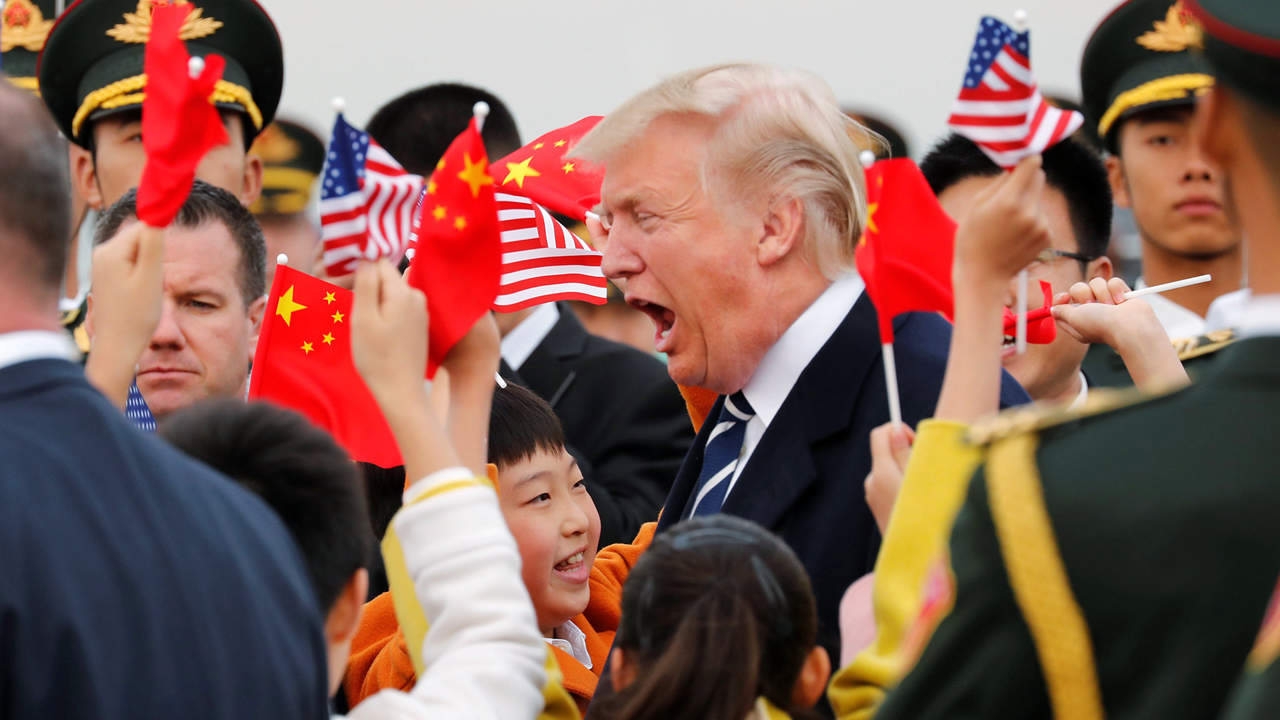
Business
16:27, 08-Nov-2017
Trump’s China visit an opportunity to promote 1-year plan
By Nathan King

Economic cooperation is widely seen as the bedrock of ties between China and the United States. At the 19th CPC National Congress, Xi Jinping recommitted China to further reform and opening up. And on this state visit to China, US President Donald Trump will be discussing with his Chinese hosts on that commitment.
At their Mar-a-Lago meeting back in April, Xi Jinping and Trump fast-tracked economic negotiations. One of the most important economic results was a 100-day plan of initial actions, released in mid-May, which have been completed in July.
The 10 initial results of 100-day plan cover five sectors, namely agricultural products, energy, financial services, investment, and people-to-people exchanges between the two countries. For example, the plan allowed US beef to be imported into China after a 14-year absence and Chinese cooked chicken products to be imported into the US for the first time.

US President Donald Trump and first lady Melania arrive on Air Force One in Beijing, China, November 8, 2017. /VCG Photo
US President Donald Trump and first lady Melania arrive on Air Force One in Beijing, China, November 8, 2017. /VCG Photo
As the 100-day trade talks between China and the US close, the world's two largest economies agreed to build on initial results and extend their economic cooperation by a year in a forthcoming comprehensive economic dialogue (CED).
The CED paved the way for potential agreements in areas ranging from natural gas to more US access to financial services in China. In return, Beijing would like fewer restrictions on US high-tech exports to China--including dual-use technologies with civilian-and-military applications.
But when it comes to the wider trade and economic relationship, the US is asking for more.

US President Donald Trump /VCG Photo
US President Donald Trump /VCG Photo
"This is only possible if there is a more fair and balanced economic relationship between the US and China. This means providing access for American firms in China as we provide access for Chinese firms in the US. It means addressing the imbalances caused by the Chinese intervention in its economy as well as addressing the impact of industrial, agricultural, technological and cyber policies," said Steven Mnuchin, US Secretary of the Treasury.
Trump will be accompanied on the trip this week by a delegation of more than two dozen US companies. The firms are expected to sign a range of contracts, including deals on US liquefied natural gas, symbolizing renewed efforts to narrow the trade gap.

CGTN Photo
CGTN Photo
“There are a lot of areas that we would like to see this –what I’d like to call proactive, reciprocal treatment. I’m hoping that these will be addressed during the visit,” William Zarit, chairman of American Chamber of Commerce in China, told CGTN previously.
The CED raised the economic relationship between China and the US to new levels. Trump’s China visit will offer an opportunity for China and the US to review the achievements made in China-US ties and outline the relationship's next steps.

SITEMAP
Copyright © 2018 CGTN. Beijing ICP prepared NO.16065310-3
Copyright © 2018 CGTN. Beijing ICP prepared NO.16065310-3